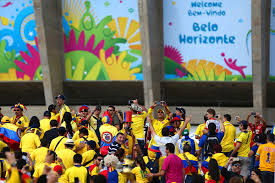By Andrew Warshaw
July 7 – As the investigation continues into last week’s tragic accident in the World Cup host city of Belo Horizonte, when part of a flyover collapsed killing two people and injuring many others, no-one will have been more devastated than the city’s top tournament official.
Belo grief tinged with relief as city welcomes Seleçaõ for semi-final

